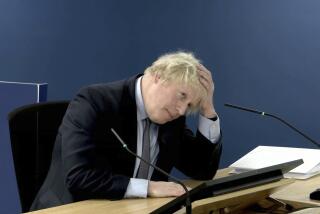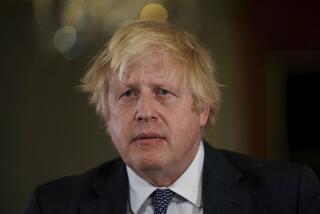Britain’s Boris Johnson may have finally crossed the line — or maybe it’s just Boris being Boris
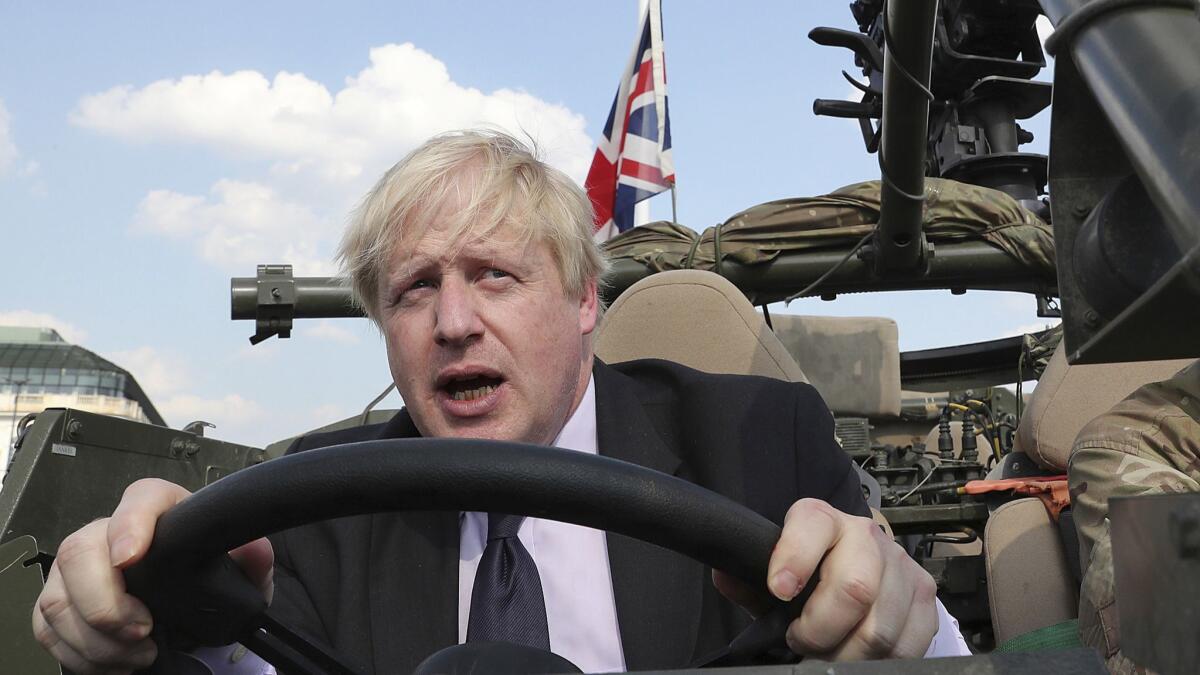
Reporting from London — Ever since he was left dangling from a zip line stretching over a London park during the 2012 Olympics, it has been hard to take Boris Johnson too seriously.
With his floppy blond hair, disheveled suits and penchant for using inflammatory language, he cuts an unlikely political figure.
Yet, buffoonery and controversy aside, Johnson has scampered steadily up the political ladder in Britain — first as the mayor of London and then as the unexpected star of “Brexit,” the successful campaign for Britain to leave the European Union.
When Prime Minister David Cameron resigned after the Brexit vote in 2016, Johnson threw his name in the hat as successor, a position that many believe has always been his ultimate goal. When Theresa May was named prime minister instead, she tapped Johnson to be her foreign secretary.
May’s rationale for picking Johnson, it was widely reported, was that it was better to keep your enemies close.
But much has changed this summer and Johnson’s future — whether it’s to rise to Britain’s top job or finally fall from grace — hangs in the balance.
Johnson resigned as foreign secretary in July over the terms of the Brexit deal now being negotiated, saying that the dream of regaining full independence from the EU was dying because of “needless self-doubt.”
Suddenly he was out of the inner circle of British politics and forced to make his case for a so-called hard Brexit from the sidelines.
And then last week he dived head first into controversy again — this time by saying women who wear burkas look like “letter boxes” and “bank robbers.”
“If you say that it is weird and bullying to expect women to cover their faces, then I totally agree,” Johnson wrote in his regular column in the Telegraph newspaper on Aug. 5. “I would go further and say that it is absolutely ridiculous that people should choose to go around looking like letter boxes.”
The strength of the outrage and condemnation for his flippant remark on traditional head coverings worn by some Muslim women has been fierce.
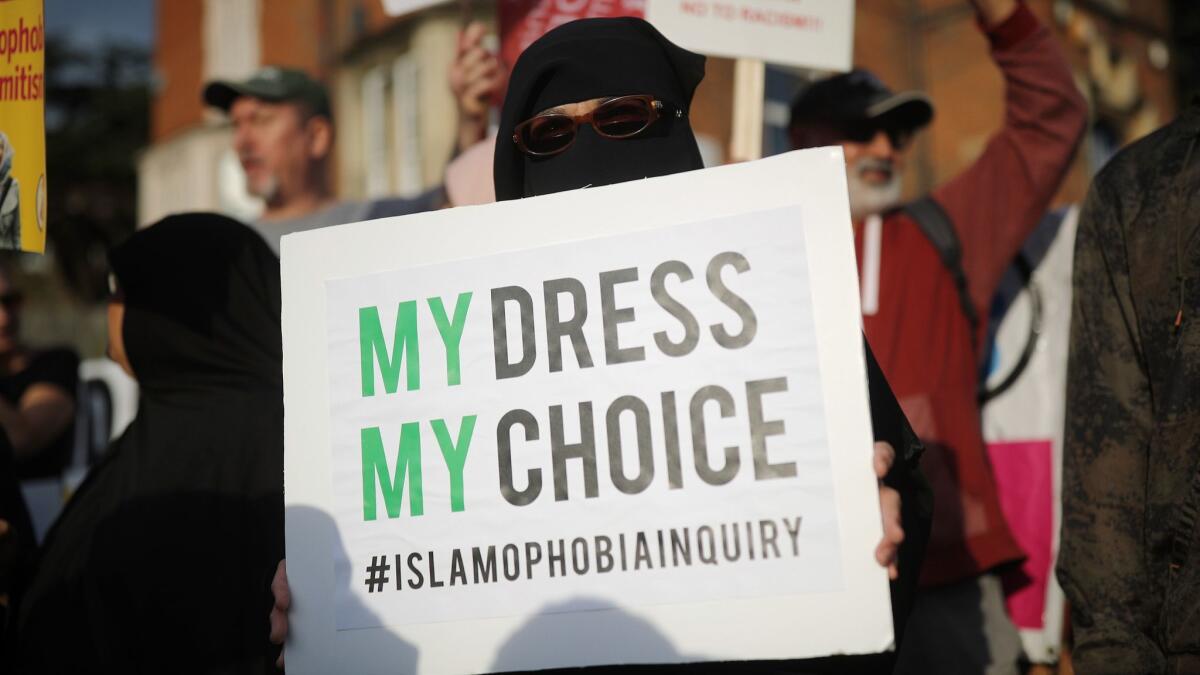
May publicly condemned his comments and urge him to apologize. The Conservative Party launched an inquiry after receiving dozens of complaints and the Muslim Council of Britain called on the prime minister to stand for nothing less than a full investigation.
While this could be a career-ending moment for a different politician, Johnson has an uncanny ability to bounce back — often with renewed energy.
“This will probably turn out to have benefited Boris quite a bit,” said Andrew Gimson, author of “Boris: The Rise of Boris Johnson.”
“It’s very difficult to sink Boris. He is the expression of a kind of merry old England conservatism. He is offering an alternative type of leadership to someone like Theresa May.”
As a result, Gimson believes, many are willing to dismiss Boris as simply being, well, just Boris.
“Boris is saying something the other politicians won’t say,” he added. “The wider public quite like the idea of politicians who say provocative things.”
In much the same way that Donald Trump has tapped into populist politics and speaks in what his supporters see as refreshingly honest terms about contentious issues such as immigration, so too does Johnson.
But the mistakes and gaffes over the years have not always been slight, and this could be one blunder too far.
When President Obama visited Britain before the 2016 Brexit referendum to encourage the electorate to vote to remain in the EU, Boris used a newspaper column to criticize him and label him “part-Kenyan,” widely interpreted as a slur.
As foreign secretary he was widely condemned for wrongly saying jailed British mother and charity worker Nazanin Zaghari-Ratcliffe was teaching journalists in Iran, which the Iranians seized on to strengthen their case that she was a spy.
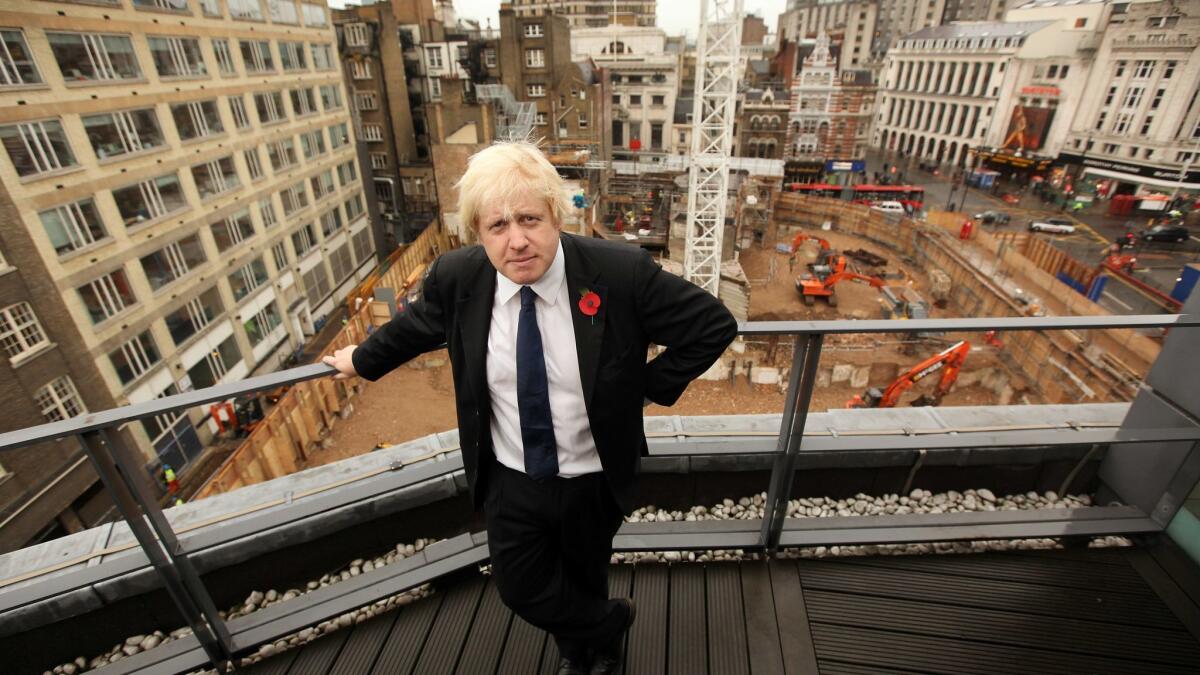
Jacob Rees-Mogg, a conservative member of Parliament and staunch Brexiteer, said any investigation into the former foreign secretary is actually a “show trial” intended to prevent him from becoming leader one day.
“Could it be that there is a nervousness that a once and probably future leadership contender is becoming too popular and needs to be stopped?” said Rees-Mogg, a Johnson supporter.
Some seem eager to show their support for Johnson’s outspoken ways.
In the town of Hadleigh, in the east of England, some residents showed their support for Johnson’s statement by covering a red mailbox in a black liner.
Johnson has been tight-lipped about his comments, refusing to apologize but also refusing to say any more.
To reporters outside his Oxfordshire home over the weekend, he gave a very British “no comment” by walking down his driveway in board shorts and a scruffy rugby jersey and simply offering the waiting journalists cups of tea instead.
Boyle is a special correspondent.
More to Read
Sign up for Essential California
The most important California stories and recommendations in your inbox every morning.
You may occasionally receive promotional content from the Los Angeles Times.
